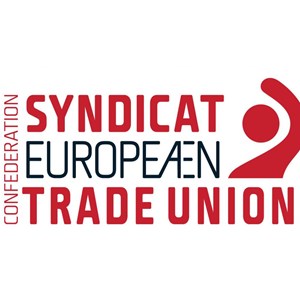Advertising is communication: its contents guide purchasing behaviour, perceptions and experiences towards brands and institutions, and its messages mature within current market realities and respond to people's concrete needs.
The UNI/PdR 164 reference practice on Accessible and Inclusive Advertising, presented at the headquarters of the Italian Standardization Body, UNI, represents a concrete step forward in the field of social inclusion.
Companies have become increasingly aware of the need to develop and adopt sustainable and responsible tools and narratives, capable of promoting equal cultural and social opportunities with a view to also protect people's rights.
The UNI/PdR 164 Practice was promoted by UPA, Utenti Pubblicità Associati, with UNA, the Association of Communication Agencies, and FCP, the Association of Advertising Concessionaires, and was developed by the expert members of the UNI Technical Table, professors from Italian and foreign universities, and professionals with consolidated experience in the field of accessibility, communication and advertising.
UNI/PdR 164 (freely downloadable here) sets the requirements for communication that crosses multiple channels (platforms, devices and touchpoints) in different contexts (media and territory) and is accessible and usable by everyone: from children to the elderly, from people with foreign languages and cultures through people with different types of disabilities (sensory, cognitive, mental, physical-motor, specific learning disabilities and others) to people with various forms of illiteracy.
According to Giuseppe Rossi, UNI President, “UNI/PdR 164 confirms UNI’s commitment to standardization activities with a direct impact on the person in his or her individual sphere but also on a collective scale: after social responsibility, sustainability and gender equality, accessibility – in its most diverse aspects such as, in this case, advertising communication – contributes to creating the conditions for a world made well.”
“The topic of inclusion is of fundamental importance to me, professionally and personally, in all its facets,” underlined Marco Travaglia, President of UPA. “I firmly believe that access to information and advertising messages must be guaranteed to everyone, without barriers, without obstacles, so that no one feels excluded.
Accessibility is not only an ethical duty but an opportunity to create more authentic and meaningful connections with people, regardless of their abilities or conditions. This commitment reflects my belief that more accessible advertising is not only possible but necessary, to build a truly inclusive society.”
The document examines the following accessibility services: subtitling, audio description, Italian sign language service (LIS), easy language, and augmentative and alternative communication (AAC).
“The Practice on Accessible and Inclusive Advertising, as we have seen, is a rigorous technical document, broken down into requirements and recommendations. It is the result of a concrete methodological approach inspired by the principles of Universal Design and which has led to the distinction between Advertising that is Born Accessible (PNA) and Advertising Made Accessible (PRA)”. Emilia Grazia Costa, Project Leader of the UNI Technical Table and expert member for accessible advertising and communication, continues by highlighting that “UNI/PdR 164 is a unique tool, the first codified and regulated by a Standards Body available to the advertising and commercial communication supply chain.”
According to experts, there are many reasons advertising stakeholders would benefit from the practice, and these reasons vary in nature.
“The subtitle in Advertising that is Born Accessible manages to express” – according to Carlo Eugeni, expert member of subtitling and easy language – “all the communicative potential of the advertising message without having to compromise between accuracy and usability.”
Similarly, according to Maria Valero Gisbert, expert member of AD, audio description, “when developed for advertising that is born accessible, makes it possible to create a mental image in the listener, through an accurate lexical choice, without having to give up part of the advertising message due to lack of space.” According to Anna Cardinaletti, expert member for the sign language service, “an advertising content expressed in Italian sign language – a language recognized by the State since 2021 – reaches all those, deaf and hearing, who recognize themselves in this language and represent a cultural turning point in our country.”
Fabio Fornasari and Andrea Socrati, expert members for accessibility design for places and events, highlight that UNI/PdR 164 is "able to accompany and guide within a cultural paradigm that recognizes and respects diversity, also understood as a learning style and that, using sensory access routes, allows one to increase one's knowledge, broaden one's points of view and fuel creativity."
"It is not enough for the advertising invention to correctly use the individual accessibility services, or to combine them with balance and harmony." Marisa Pavone, expert member of special pedagogy, states that "in addition to the criterion of technical-creative efficiency, it is necessary to respond to a criterion of creative effectiveness."
To achieve these results, an experimental component has also been introduced linked to "an important neurobiological perspective, to better understand the perceptive and cognitive changes due to cultural, social or pathological factors: this has allowed us to see the operational tools in a new light," highlights Emiliano Ricciardi, expert member of cognitive neuroscience.




